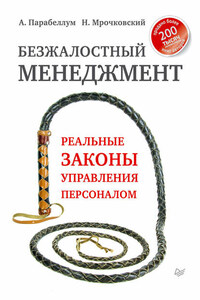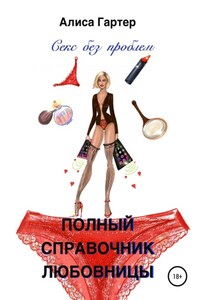Upon the Christmas morning the parish flocked to church, and the church was dressed so beautifully that every one was amazed. Amy and Eoa made the wreaths, the garlands, and rosettes; there was only one cross out of the lot, a badly–bred Maltese one; and Eoa walked over the barbarous pewscreens (like the travisses in a stable), springing from one to another, with a cable of flowers and evergreens, as easily and calmly as she would come down–stairs to dinner. Of course she had never heard of that sort of thing before, but she took to it at once, as she did to anything pretty; and soon she was Amyʼs mistress, as indeed she must be every oneʼs, unless she could not bear them.
The sons of the Forest looked up with amazement as they shambled in one after other, and an old woodcutter went home for his axe, lest the ivy should throttle the pillars. On the whole, the parish attributed this great outburst of foliage to the indignation of the pixies at Parson Johnʼs going to London, and staying there so long.
The prayers were read by Mr. Pell, for the rector was weary and languid; but he would not forego his pleasant words to the well–known flock that day. While the choir was making a stupendous din out of something they called an “anthem,” Octave slipped off to his Rushford duty, through the chancel–door. Then, with his silken gown on – given him years ago by subscription, and far too grand for him to wear, except at Christmas and Easter – John Rosedew mounted the pulpit–stairs, and showed (as in a holy bower of good–will and of gratitude) the loving–kindness of his face and the grandeur of his forehead. As he glanced from one to the other with a general welcome, a genial interest in the welfare both of soul and body, a stir and thrill ran through the church, and many eyes were tearful. For already a rumour was abroad that “Uncle John” must leave them, that another Christmas Day would see a stranger in his pulpit.
After dwelling briefly on his favourite subject, Christian love, and showing (by quotations from the noblest of heathen philosophers) how low and false their standard was, how poor a keystone is earthly citizenship, the patriotism of a pugnacious village, or a little presumptuous Attica, to crown and bind together the great arch of humanity; after showing, too, with a depth of learning wasted on his audience, how utterly false the assertion is that the doctrines, or rather the principles, nay, the one great principle of our New Testament, had ever been anticipated on the banks of the Yellow River – eloquently he turned himself to the application of his subject.
With some unconscious yearning perhaps, or perhaps some sense of home–truth, he gazed towards the curtained pew where sat his ancient friend, brought thither (it was too evident) by tidings of his absence. As the eyes of the old men met, for the first time after long estrangement – those eyes that had met so frankly and kindly for more than fifty years, during all which time each to the other had been a “necessarius” – and as each observed how pale and grey his veteran comrade looked, neither heart was wholly free from self–reproach and sorrow.
John Rosedewʼs mild eyes glistened so, and his voice so shook and faltered, that all the parish noticed it, and wondered what harm it had done last week. For none of them had ever known his voice shake, except when some parishioner had done the unbecoming; and then the village mourned it, because it vexed the parson so.
The next day, as soon as Parson John had found that all parochial matters were in proper trim, and that he might leave home again without neglect of duty, what did he do but order a fly, no less than a one–horse fly, from the “Jolly Foresters;” which fly should rush to the parsonage–door, as nearly as might be, at one oʼclock? Now why would not Coræbus suffice to carry the rector and valise, according to the laws of the Medes and Persians, a distance of two parasangs?
Simply because our Amy was going, and had every right to go. Beautiful Amy was going to London, great fountain–head of all visions and marvels, even from white long–clothes up to the era of striped crinoline. And who shall object, except on the ground that Amy was too good to go?
If Amy were put down now in Hyde Park, Piccadilly, or Regent–street, at the height and cream of the season, when fop, and screw, and fogey, Frivolus and Frivola, Diana Venatrix, Copa Syrisca, Aphrodite Misthote, yea, and even some natural honest girls moderately ticketed, are doing their caravaning – if Amy were put on the pathway there, in her simple grey hat and feather, and that roundabout chenille thing which she herself had made, and which followed the lines of her figure so, fifty fellows, themselves of the most satisfactory figure (at Drummondʼs, or at Couttsʼs), fifty fellows who had slipped the hook fifty times apiece (spite of motherly bend OʼShaugnessey) must have received their stroke of grace, and hated Cradock Nowell.
Although the South–Western Railway had been open so many years, our forest–child had never been further from green leaf and yellow gorse than Winchester in the eastern hemisphere, and Salisbury in the western. And now after all to think that she was going to London, not for joy, but sorrow. Desperate coaxing it had cost; every known or new device – transparent every one of them, as the pleading eyes that urged it – every bit of cozening learned from three years old and upward, every girlish argument that never can hold water, unless it be a tear–drop; and, better than a million pleas, every soft caress and kiss, all loving, all imploring – there was not one of these but came to batter Amyʼs father, or ever he surrendered. For Johnʼs ideas were very old–fashioned as to maidenly decorum, and Aunt Eudoxiaʼs view of the matter was even more prim and grim than his. Yet (as Amy well remarked) if














